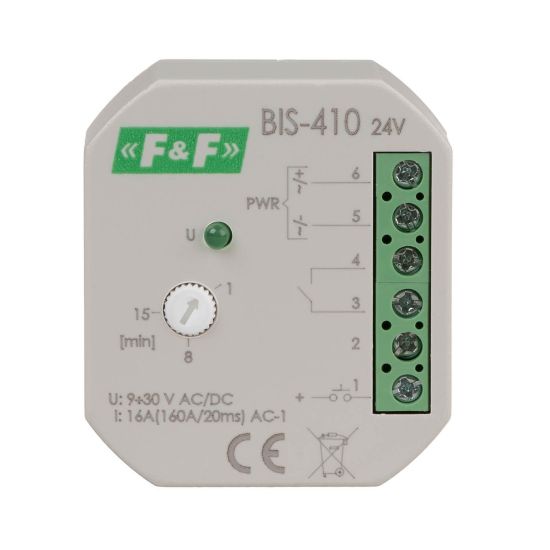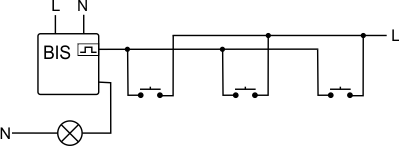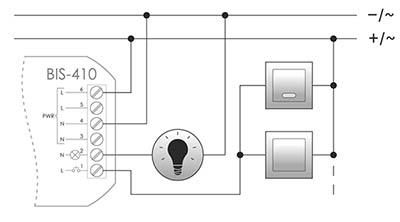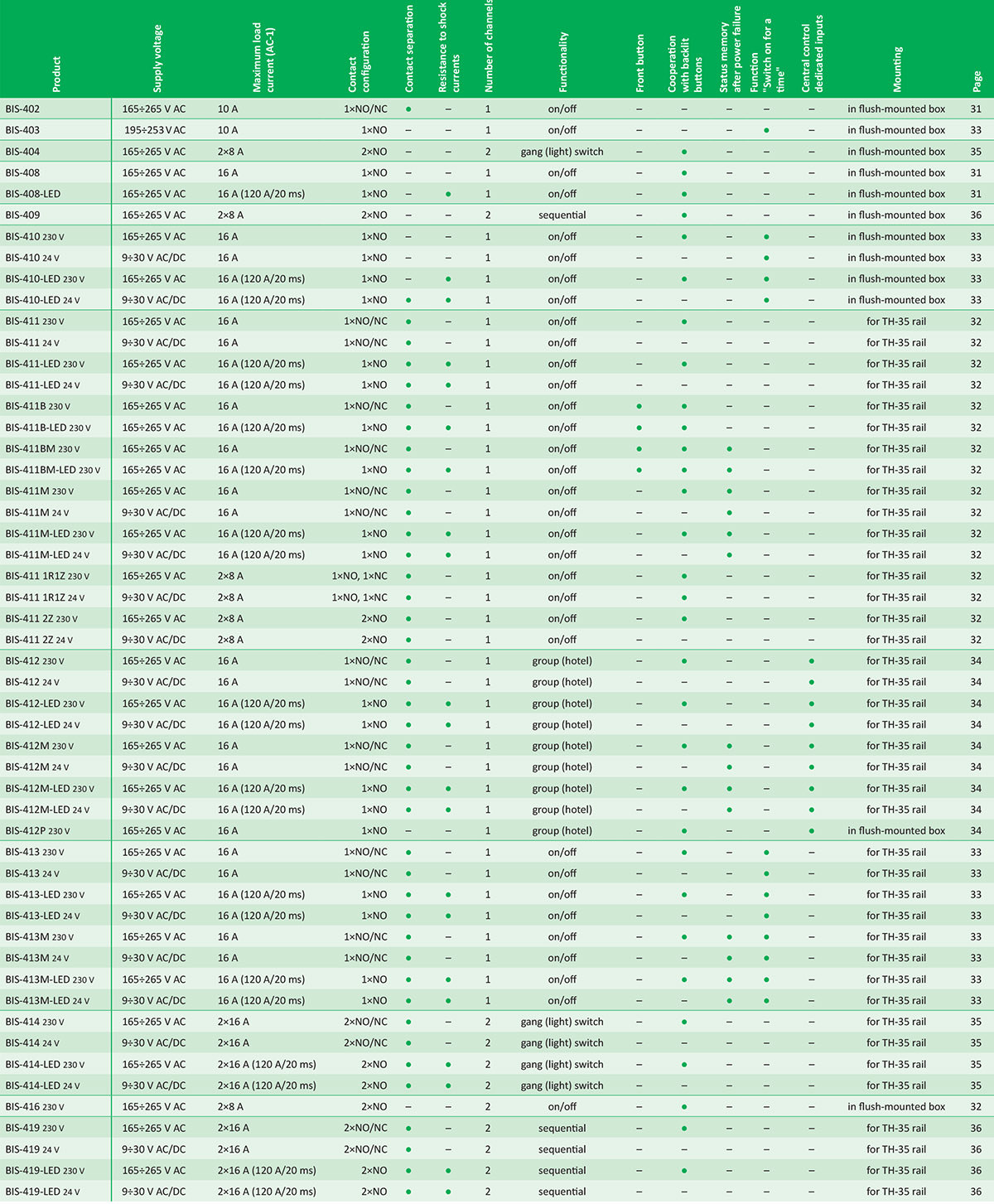






Functioning
The receiver is switched on after a current pulse caused by pressing any momentary (bell) button connected to the relay. The receiver is turned off after the next impulse or utomatically
after the set off time. A longer pressing of the momentary button (lasting at least 2 seconds) turns on the relay permanently. The relay will be turned off only after pressing the momentary button again (or after a power failure).

Note!
BIS-410 24 V is not compatible with backlit buttons.
The above data are indicative and will depend to a large extent on the design of a specific receiver (especially for LED bulbs, energy saving lamps, electronic transformers and pulse power supplies), switching frequency and working conditions.

